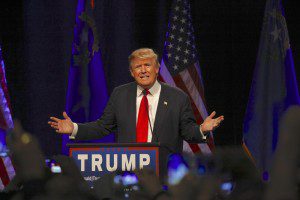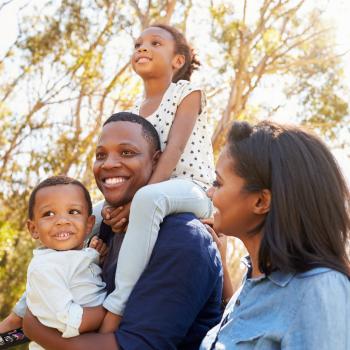
Readers of Parenting with Grace, in which I discuss this very issue (not as it relates to Trump, but to other historic, cultural and political trends) will not be surprised by this latest study from the Univ of Massachusetts which found that what draws voters to Trump is not church affiliation, political leanings, socio-economic status, or educational level–but the parenting style in which you were raised.
Sound crazy? It’s not as crazy as it sounds. In fact, are 60 years of research backing up the connection between parenting styles and voting patterns. Here is the latest contribution to that body of literature as reported in the Washington Post.…
One of the reasons that Donald Trump has flummoxed pollsters and political analysts is that his supporters seem to have nothing in common. He appeals to evangelical and secular voters, conservative and moderate Republicans, independents and even some Democrats. Many of his supporters are white and don’t have a college degree, but he also does well with some highly educated voters, too.
What’s bringing all these different people together, new research shows, is a shared type of personality — a personality that in many ways has nothing to do with politics. Indeed, it turns out that your views on raising children better predict whether you support Trump than just about anything else about you.
Matthew MacWilliams, a doctoral candidate at the University of Massachusetts, Amherst, conducted a poll in which Republicans were asked four questions about child-rearing. With each question, respondents were asked which of two traits were more important in children:
- independence or respect for their elders;
- curiosity or good manners;
- self-reliance or obedience;
- being considerate or being well-behaved.
Psychologists use these questions to identify people who are disposed to favor hierarchy, loyalty and strong leadership — those who picked the second trait in each set — what experts call “authoritarianism.” That many of Trump’s supporters share this trait helps explain the success of his unconventional candidacy and suggests that his rivals will have a hard time winning over his adherents.
When it comes to politics, authoritarians tend to prefer clarity and unity to ambiguity and difference. They’re amenable to restricting the rights of foreigners, members of a political party in the minority and anyone whose culture or lifestyle deviates from their own community’s.
“For authoritarians, things are black and white,” MacWilliams said. “Authoritarians obey.”
…MacWilliams found that the likelihood that participants in his poll supported Trump had little to do with how conservative they were — no surprise, as Trump’s positions on many issues are relatively moderate. Trump also appealed more or less equally to the likely Republican primary voters in MacWilliams’s sample regardless of their age or sex, income and level of education. Regular churchgoers and evangelicals were no more or less likely to support Trump, either.
Those with authoritarian views on raising children were, however. READ MORE
















